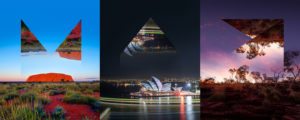
At Adobe MAX 2021, Adobe announced numerous updates across desktop, iPad and the web for Photoshop. Among these updates is a new beta, allowing users to lightly edit and collaborate on photos in Photoshop on the web.
Photoshop – and Illustrator – on the web allow users to collaborate on and (lightly) edit documents hosted in the cloud on their browser without needing to download or even launch the app. You can navigate layers, make basic selections, perform a handful of basic edits, make annotations and leave comments, but you will still need Photoshop for many editing tasks. Nonetheless, it's an important first step.
Photoshop on the web (beta) lets users open, lightly edit and comment on Photoshop files without needing to launch Photoshop.
Speaking to The Verge, Scott Belsky, Adobe's chief product officer, said, 'We're not bringing all the features on day one, but we really want to unlock all those basic edits that are just best done now in the browser with whoever you're working with. ' Belsky further described the current Photoshop on the web beta as offering light editing on PSD files.
Although you don't need to have Photoshop installed to work on the web version, you do need to be a Creative Cloud subscriber. Adobe writes, 'To access Photoshop on the web (Beta), click "Open in Photoshop on the web beta" in the header when viewing a Photoshop file in your browser. ' You can learn more and register for the beta here.
There are other updates to Photoshop. On Photoshop on desktop, the Object Selection Tool has been improved. You can now hover over an object, and a single click will automatically select it. While not every object can be detected by the software, Adobe Sensei is continually improving, and the current iteration detects a wide variety of objects. Further, selections made with the Object Selection Tool have better edge detection.
A new Mask All Objects option selects each subject and creates individual layer masks.
A new menu item has been added to speed up the selection process. By going to Layer > Mask All Objects, Photoshop will detect each object in your photo and create individual layer masks with each object selected.
Neural Filters has undergone continuous improvement since launching last year. Today, Adobe has added three all-new filters in beta, Landscape Mixer, Color Transfer and Harmonization. Landscape Mixer combines multiple scenes into a single new one. Color Transfer takes the colors and tones of one image and applies them to another. Harmonization uses AI to generate a composite of two separate images.
The new Color Transfer (beta) Neural Filter in action. In this case, the filter applied the color and tone of the smaller image in the top right to the original image on the left, resulting in the larger edited image on the right.
Other existing Neural Filters are improved. The Depth Blur filter has a more natural blurred background, and users can add grain to the blur to make it look more realistic. The Superzoom filter operates on the entire image instead of the previous filter version that worked on a small zoomed-in area. Style Transfer now applies a more painterly, artistic effect. Finally, the Colorize filter now converts black and white images to color images with more vibrant, natural colors. To learn more about Neural Filters, click here.
Adobe has improved how gradients work within Photoshop. While the old mode, dubbed Classic, is still available, new perceptual and linear modes have been added. These result in more naturally blended gradients.
The Perceptual and Linear gradient modes are new to Photoshop
Photoshop now supports Apple's Pro Display XDR to view your work in high dynamic range. The new MacBook Pro (14-inch and 16-inch) models are supported, as is Apple's standalone Pro Display XDR.
On M1 Macs, there has been a new Export As user interface with improved speed, better color profile handling, new preview behavior and a side-by-side comparison option. This is now available on all operating systems.
M1 users have had access to a new Export As user interface for a bit now. Today, users across all operating systems can take advantage of the new and improved interface.
Last year, Adobe created the unified extensibility platform, UXP, which powered new and improved Photoshop plugins. New third-party plugins are available now, including Easy Panel, Pro Stacker, Re-Touch by FX-Ray, and APF-R. Lumenzia and TK8 will be released soon.
Other improvements to Photoshop on desktop include a faster Oil Paint filter, improved language support for type layers, increased app stability and additional bug fixes.
You can quickly share your work for review with clients and colleagues on desktop and iPad. Adobe writes, 'Your collaborators will receive a link to your document where they can access it on the Creative Cloud website and leave comments, including adding pins and annotations. That information flows directly to you inside Photoshop so you can see and address the feedback in context. '
Adobe Camera Raw (ACR) is now available on Photoshop on iPad
Speaking of Photoshop on iPad, a big update is Camera Raw file support. With Adobe Camera Raw coming to Photoshop on iPad, you can open and edit any file that ACR currently supports, perform adjustments, use auto-adjustments and save your raw files as smart objects. You can learn more about this in our previous coverage.
Dodge and Burn is also now available in Photoshop on iPad
On the topic of smart objects, you can now convert layers into smart objects in Photoshop on iPad. Additional functionality from Photoshop on desktop, including Dodge and Burn, are now available on iPad.
To catch up on all the updates from Adobe, visit its Adobe MAX 2021 hub.
. dpreview.com2021-10-26 18:45


















